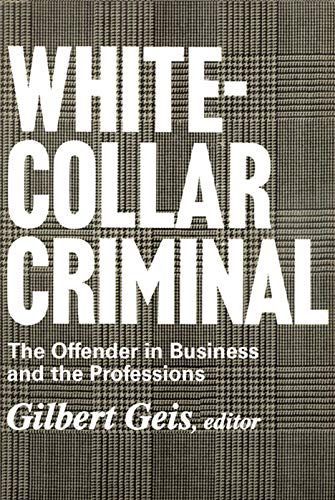
White-Collar Criminal The Offender in Business And the Professions
In his presidential address to the American Sociological Society more than a quarter of a century ago, Edwin H. Sutherland advanced the idea that crime was being perpetrated by members of society that were considered "normal," "affluent," and "well-adjusted". This notion of a new criminal class played havoc with the traditional theories of crime causation and directed considerable research away from the criminal at war with society to the criminal nestled snugly in society's lap. Since then the concept of "white-collar crime" has become even more important for the understanding not only of criminal behavior but of the total social and moral structure of American society as well. White-Collar Criminal brings together, for the first time since the concept was enunciated, the major classic and contemporary writings in this rapidly expanding area of investigation. The book provides a provocative array of studies of the crimes committed on the upper echelons of American life-embezzlement, business theft, consumer fraud, antitrust violations, and many others-as well as the most significant theoretical writings on the subject. The book is both absorbing and intellectually challenging. Teachers seeking to give their students an understanding of this basic segment of criminological thought and research will find this volume a unique combination of empirical data and theoretical analysis in highly readable form. Gilbert Geis is currently professor emeritus in the department of Criminology, Law, and Society at the University of California, Irvine. He has been project director on grants from the National Institute of Mental Health and the Walter E. Meyer Research Institute of Law, and research director of an Office of Economic Opportunity program employing former narcotic addicts in street work with addicts and as classroom assistants in junior high schools. Geis has served as chairman of the section on Crime and Delinquency of the Society for the Study of Social Problems and as secretary-treasurer of the criminology section of the American Sociological Association. He has been a consultant to the President's Commission on Law Enforcement and Administration of Justice; in this capacity he was responsible for draft statements on white-collar crime and on compensation to victims of violent crime.